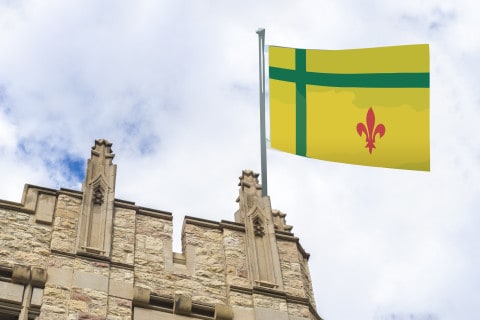CELINE GRIMARD
The University of Saskatchewan’s College of Law is breaking new ground with a proposal for a French common law program option for future students — the first of its kind in Canada.
While the program has yet to receive approval from the Academic Programs Committee of Council, it has been approved at the college level. At the U of S, the APC functions to approve or deny new program proposals. The French language common law option will allow students to complete 30 of the 90 credits in an exclusively French setting. Students will also be required to complete 15 out of the 30 French credit units at the University of Ottawa.
At the head of this process is Doug Surtees, associate dean academic at the College of Law. If the program receives approval and is a success, a growing partnership will be made between the two universities, the U of O  and the U of S.
and the U of S.
“They hope it might develop into an exchange where French language students from the U of O might come [to the U of S] in the future to take English language courses,” Surtees said.
According to Surtees, programs like this one are innovative components to the U of S, benefiting not only students but also the public in general, as the program will support students who wish to practice French law in many francophone communities outside of Quebec.
Presently, Surtees confirms that there are a number of students who are bilingual but who are not confident enough in their language abilities to practice law in French. Students who wish to apply to the program will have to either be bilingual or meet the minimum language requirements at the U of S.
Currently, the College of Law offers one bilingual moot per year, the Laskin Memorial Moot, but the French language common law option aims to create more opportunities for bilingual moots. In a moot, a simulated court case including four students, law students are given a particular problem to argue and research, and then they present their case in front of a judge or a panel of judges.
“The programs will be there to help them with the legal research, writing skills and the specialized language that goes with the law,” Surtees said.
According to Surtees, the partnership with the U of O will be beneficial in determining the French language skills of applicants. Surtees explains that students will be required to submit a two page summary of why they would like to join the program and how the French component will benefit them and their studies.
“The student lawyers are given a particular problem to argue and they do their research on it and present that research in front of a judge or a panel of judges just like they would in a real court, and often the judges are real.”
According to Surtees, the program will better serve students who already have their academic sights set on the U of S College of Law.
“It will allow them the opportunity to develop legal skills in French, they will be in better positions to argue legal cases in French … [since] both French and English statutes are equally authoritative,” he said.
Currently, courts are required to offer trials in both French and English, but it is not a requirement for every lawyer and judge to be bilingual. However, when the decision is made to appoint judges, at least a few must be bilingual and, according to Surtees, there are several bilingual judges within Saskatchewan.
—
Photographic Illustration: Jeremy Britz / Graphics Editor